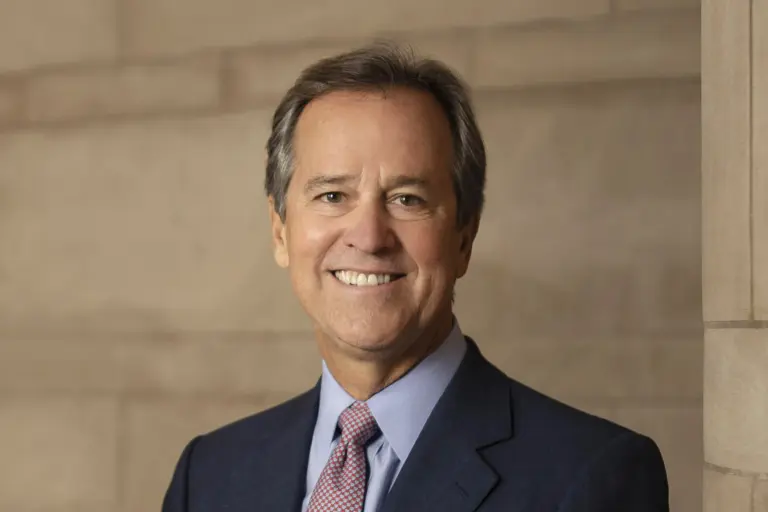By Rabbi Mitchell M. Hurvitz
I wrote this week’s column on January 6 – the fourth anniversary of the 2021 Capitol Riot. I vividly recall the day that a mob of President Trump supporters descended on the U.S. Capitol and attempted to interfere with the certification of electoral votes from the 2020 presidential election. The rioters assaulted the Capitol police force, smashed through windows and doors, ransacked the building and destroyed property, and sent members of Congress and their staff into hiding in offices and bunkers. Approximately 140 members of law enforcement were assaulted.
In 1992, I directly experienced the Rodney King Los Angeles Riot while running the Magen David Hebrew School on Pico Boulevard. I had under my care 33 Hebrew School students who had taken their bus from elementary school to the Temple before the eruption of violence. While gunshots rang out and buildings burned, I brought the children into the Sanctuary. Eventually, a police officer arrived to serve as a solo guard in front of the Temple, but it was the scariest experience of my life.
As a result, I understand the terror that innocents must have experienced during the Capitol Riot. Vice President Pence and his family were evacuated from the Senate chambers, and some members of Congress were escorted to an underground bunker. Others had to barricade themselves in offices or shelters in the House chamber. National Guard members eventually secured the perimeter and facilitated law enforcement to clear the chambers and offices of the U.S. Capitol.
The danger of mob mentality that fuels riots is that the passion of the rioter subverts the law. Rioters allow themselves permission to be destructive to property and people, causing harm, injury, and even death. The victims need to shelter, hide in fear, and hope to survive until the madness has passed. All of this is the truth about riots, including the Capital Riot, the BLM Riots, and the Rodney King Riot.
During the Capital Riot, President Trump was in the White House and posted a video message on social media in which he repeated his false claims of election fraud. However, he also told his supporters to “go home in peace.” For many, the feelings about President Trump’s reelection are pretty intense. I have intense feelings about President Trump; however, as a Pulpit Rabbi, I do not like it when religion and politics become too intertwined.
In the U.S., we have established the separation of church and state in our Constitution. The stated principles in the First Amendment prohibit the government from establishing any religion and protect people’s right to choose or choose not to worship with any religion. The two declared clauses, the Establishment Clause and the Free Exercise Clause, comprise the separation of Church and State.
For the past 30 years, on multiple occasions, I have been encouraged to be more “political” on the Temple Sholom pulpit. However, the individuals providing this encouragement almost always assume that my message will agree with their views. I have never been told in my career: “Rabbi, I thought you gave a great sermon even though I completely disagreed with you.”
In any meaningful democracy, there needs to be an accurate reflection of its citizenry, and religious affinity groups should advocate for moral positions they feel are especially important. The Third Circuit Court of Appeals wrote: “Religion includes a way of life as well as beliefs upon the nature of the world…” Then, they quoted the Christian Testament of James for the admonitions to be “doers of the word and not hearers only…”
The United States Catholic Conference proclaims as part of its formal mission: “It is the church’s role as a community of faith to call attention to the moral and religious dimension of secular issues, to keep alive the values of the Gospel as a norm for social and political life, and to point out the demands of the Christian faith for a just transformation of society.”
While the Internal Revenue Code prohibits tax-exempt religious organizations from campaigning for or against a particular candidate for public office, this rule is often subtly, sometimes blatantly, pushed aside. An overt defiance movement to the Internal Revenue Code policy, known as Pulpit Freedom Sunday, has clergy mailing their overt political candidate sermons to the IRS.
Alexis de Tocqueville’s writings heavily influence my views on politics and the pulpit. In the 1830s, this young Frenchman visited the United States to see how our experiment in liberty was working out. He wrote a book entitled: “Democracy in America,” and Tocqueville was surprised by how religion and democracy could effectively coexist. He observed that the religious leaders were careful not to become involved with party politics. Religious leaders understood that the essence of politics was divisive, and instead, they focused on strengthening families, creating communities and charities, building schools, and encouraging active citizenship.
Tocqueville observed what he called “habits of the heart” and that these habits fostered the effective sustaining of the common good. Tocqueville asserted that a democratic society needs a way of mediating conflicts and a sense of shared identity. Politics could focus on conflicts, but religion is on “shared belonging.” Tocqueville additionally asserted: “In proportion as a nation assumes a democratic condition… it becomes more and more dangerous to connect religion with political institutions.”
I remember the mob mentality, the violence, and the fear of the Capitol Riot. All riots quickly become lawless. However, we have a law of the land of Separation of Church and State that prevails, and the First Amendment constrains my views about the Capital Riot and other riots.
For my rabbinate, I am concerned about how to foster connectivity with one another and still address the critical moral agenda items of our time. An environment needs to foster very respectful dialogue and facilitate “arguments for the sake of heaven.” The more effectively we are connected, the better our ability to permit and even appreciate serious disagreements is. Ultimately, one hope is that the “congregational family” can hold on to their love for each other and validate their feelings for those they love, even when serious disagreements occur.
As our country undergoes transitions this month, let’s be mindful of the holy parameters we wish to foster for practical discussion. Politics often creates conflicts of interest, whereas religion is intended to promote shared responsibilities.
Shabbat Shalom.
Temple Sholom’s Senior Rabbi Mitchell M. Hurvitz is a scholar, teacher, community activist and preacher, and is recognized as one of the prominent religious leaders in the Greenwich area and beyond.



